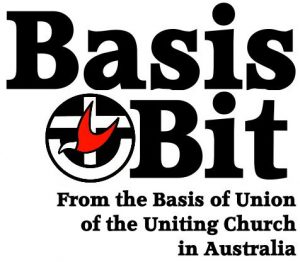7 April – Against ‘building the kingdom’
Lent 5
7/4/2019
Ecclesiastes 5:1-20
Psalm 126
John 12:1-8
In a sentence:
We are not called to do God’s work, but to do and be as God has given us
We’ve heard from Jesus today what is perhaps the most scandalous thing he has to say in the gospels, at least to the ears of the modern, left-wing-ish liberal: ‘you will always have the poor with you’.
This, in fact, is heard in three of the gospels, with the exception of Luke who, perhaps because of his sense that the poor and the marginalised symbolise something central to God’s work in Jesus, omits at least this version of the story and these words, although he has a story which is similar in some respects (Luke 7). (We might note in passing that John’s remarks about Judas here are unique to him, and something of a distraction; in Mark and Matthew’s versions, it is the disciples as a whole who say what Judas says, without apparent ulterior motive).
The problem for us is that not always having the poor with us is one of the aspirational engines of modern liberal democracy, although we’d have to say, looking at the evidence, that Jesus has the right of it.
So far as our friend Qohelet is concerned, the poor don’t loom large as an explicit concern. He does lament the situation of the oppressed (cf. 4.1-3) but he comes at poverty more from the perspective of risk and unpredictability: the rich cannot know they will not one day be poor, the righteous might well be accounted unrighteous and the living might suddenly not be.
Both Jesus and Qohelet, then, are in the same place on this, even with their very different framings of the matter, and it is a place quite different from where our political efforts are typically centred.
But there are two further questions about charity raised by Jesus’ response to Judas: What is charity, and When is it? These questions arise from the contrast Jesus draws between ‘you will always have the poor with you’ and ‘you will not always have me.’
If we ‘always have the poor’, What then is the meaning or purpose of serving the poor? What is achieved if, like Sisyphus rolling a great stone up the hill only to see it roll down again, we will not see the end of poverty through our efforts? It is obvious that, in any particular instance, what we do will make a difference for that individual. This is truly wonderful but it is not our political dream: the eradication of need. Some answer to this question – to the ‘What?’ of charitable work – is important for us as we consider once again our motivations and intentions in auspicing Hotham Mission.
Related to this is the second question arising from Jesus’ word here: the ‘When?’ of charity. When do we ‘not have Jesus’, so that we are then to serve the poor? Jesus’ point seems to be that not having him is having the poor; that that is the time for charitable work. Yet this also is less straight forward than it might seem, for the ‘when’ of Jesus is always coloured by Easter. The resurrection speaks of a continuing presence of Jesus (something like what Matthew has Jesus say at the end of his gospel account: ‘I am with you always’). It is too simple – and just not correct – to say that Jesus is no longer with us. All of this indicates that what Jesus means here – what the relationship is between the worship of God and the service of those in need – is not as clear as we might first think it to be.
Elsewhere we hear from Qohelet that ‘there is a time for every purpose under heaven’, and wonder what time is it now: time for service or time to worship, time to work or time to ‘enjoy’? We’ll come to consider that text more closely on Good Friday (I think!) but the idea of a ‘time for everything’ throws over to us the pressing question of what time we find ourselves in, here and now. This is the urgent question of all politics. The cause of all human anxiety is that we might not be in the right time, doing the right thing for this particular time. Is it the time for worship or for service? Should a years’ wages of perfume be spilled on the ground or sold and the money given to the poor? What should we spend on accommodating the life of the congregation? How big a percentage of the church budget should Hotham Mission claim?
To all of this uncertainty and anxiety, a strange word from Qohelet: ‘With many dreams come vanities and a multitude of words; but fear God’ (5.7).
Vanities and multitudes of words are the ‘form’ of getting the time wrong and sustaining ourselves in the error of ‘many dreams’. It is Qohelet’s ‘chasing of the wind’ to misconstrue where we are and what we are doing. With a federal election looming, let us be prepared for a vain multitude of words!
But, while it is easy to slip into cynicism here, Qohelet is not cynical and neither is Jesus. They ‘merely’ call us to the truth. This is largely by negative means in the case of Qohelet and largely by positive means in the case of Jesus, but it is the truth nevertheless in both cases.
Jesus’ ‘You will always have the poor with you’ and Qohelet’s caution against vain dreams and words are statements of what is the case. There is no accusation here, unless we persist in vanity and fear not God but some lesser thing. There is no permission to passivity here with respect to the needs of the poor or, more generally, with respect to the need to work that we and others might live. These are to be held together, appropriately.
The gospels finally resolve the worship-service question by Jesus’ own self-identification with the poor. To turn to Jesus is to turn towards the outcast and oppressed, the seemingly godforsaken and all-forsaken. In the case of John’s account of Jesus, the cross of the godforsaken becomes the throne of the divine Son. To see the one is to see the other, if the ‘seeing’ is sometimes worship and sometimes loving service.
In the case of Qohelet, the ‘fear of God’ he commends matches his other principal commendation, heard again today: ‘it is fitting to eat and drink and find enjoyment in all the toil with which one toils under the sun the few days of the life God gives us’ (5.19). Qohelet’s ‘enjoyment’ of food and drink and each other is a refusal to allow the poverties of life under the sun to be feared. It is a refusal to be distracted from what is good and worthy and approved by God.
Only God is to be feared or, what is the same thing in Judaism and Christianity at least, only God is to be worshipped, only God is God. This is freedom from all utopias and visions, from all dreams and multitudes of words, ever threatening to crush us with the responsibility of making them real.
Our vocation, whether through a structure like Hotham Mission or in our quiet assistance of our next door neighbour, is not to usher in the kingdom. Our vocation is to know what time it is.
It is the time to live and to love for life and love’s own sake, and to leave the rest – whatever ‘the rest’ is – to God.
In this, may God ever keep us occupied with the joy of our hearts (5.20). Amen.



